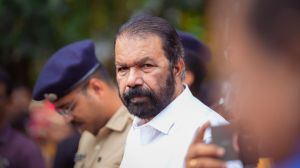China’s anti-G4 line may be a lose-lose policy
As China steps up its diplomatic offensive against UN reform, Delhi might have good reasons to wonder whether Premier Wen Jiabao’s assu...

As China steps up its diplomatic offensive against UN reform, Delhi might have good reasons to wonder whether Premier Wen Jiabao’s assurance in April— that Beijing will not oppose India’s entry into the Security Council as a permanent member—remains valid.
Chinese officials urge Delhi not to construe the hard line against early expansion of the UNSC as being directed against India. Nevertheless, there is considerable surprise here at the intensity of the Chinese campaign to undermine the resolution being promoted by India, Japan, Germany and Brazil.
Chinese officials have used words such as “divisive” and “immature” to describe the G-4 attempt to put the UNSC expansion on a fast track. In recent decades, China has reserved such language only to issues concerning national sovereignty in Tibet and Taiwan.
Even as the G-4 nations are trying rustle up support for their resolution, Beijing has sent special envoys to Europe, Africa, Latin America and the Caribbean to rally support to delay or deflect, if not defeat, the G-4 move.
Analysts here underline in private what officials can’t say in public. They suggest China’s resolute campaign is essentially targetted against Japan. That, in turn, begs even a bigger question. Why is China, uncharacteristically, risking so much goodwill to stop Japan?
Japan is an important economic partner of China. And by placing so much premium on preventing Japan from getting into the UNSC, Beijing might be setting the stage for an irreversible downslide in ties with Tokyo.
What is more interesting is the political dynamics behind the Chinese campaign against UNSC expansion.
Some analysts here concede China might have trapped itself in a “lose-lose” policy on UN reform. They insist the Chinese leadership has to choose between paying a price either on the diplomatic front or at home.
According to one assessment, there might be political consequences if the leadership is not seen as doing its best to prevent Japan from gaining a permanent perch at the UNSC. Failure might be less costly than inaction.
At a time when the Chinese leadership is trying hard to promote internal stability and address the accumulated social problems arising from rapid reforms, it would not want anti-Japanese sentiment to become a trigger for major political turbulence at home.
Clearly, if India and its friends in the G-4 do succeed in getting the UN General Assembly to move forward on Security Council reform, it will be in spite of China.





- 01
- 02
- 03
- 04
- 05


























